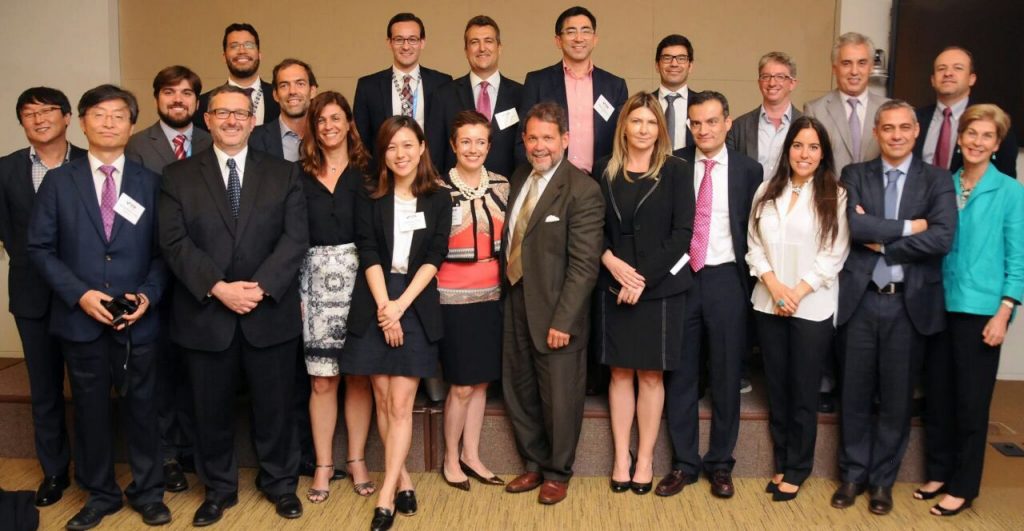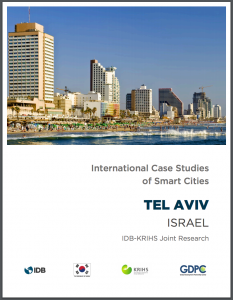Download The Smart Cities Case Study for Tel Aviv, Israel
|
The Tel Aviv case study, written by Eyal Feder and Eran Toch, is now freely available to download in English or in Spanish. The case study is one of ten international case studies developed by the Inter-American Development Bank (IDB), in association with the Korean Research Institute for Human Settlements (KRIHS), for the cities of Anyang, Medellin, Namyangju, Orlando, Pangyo, Rio de Janeiro, Santander, Singapore, Songdo, and Tel Aviv.  All the presenters at the Inter-American Development Bank (IDB) smart city event. Photo by IDB. Here is the abstract of the Tel Aviv report: In recent years, Tel Aviv has developed a unique bottom-up approach toward its Smart City project, focusing its efforts on direct resident-oriented services rather than expensive, large-scale infrastructure. This case study explains Tel Aviv's strategy, demonstrating how a high level of smart urban services was achieved using decentralized, low-cost methods. The report provides details on the approach, such as its reliance on the local startup ecosystem, its creation of services using open municipal databanks and public-private partnerships, and its emphasis on lightweight services that interact directly with residents. The case study analyzes the strengths and weaknesses of Tel Aviv's approach, discussing the technologies, processes, and strategies that can be used to implement a cost-effective smart city initiative. |
